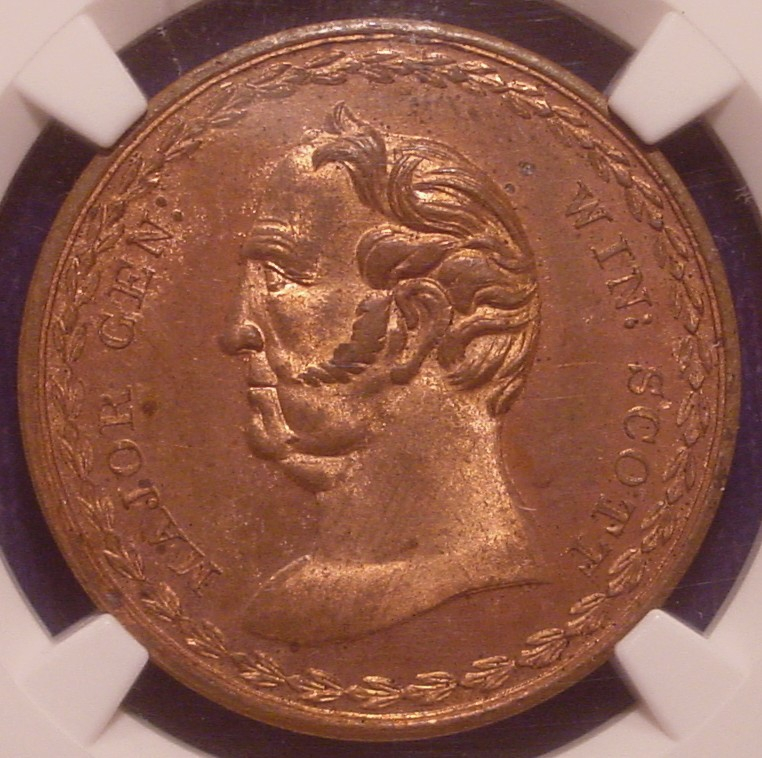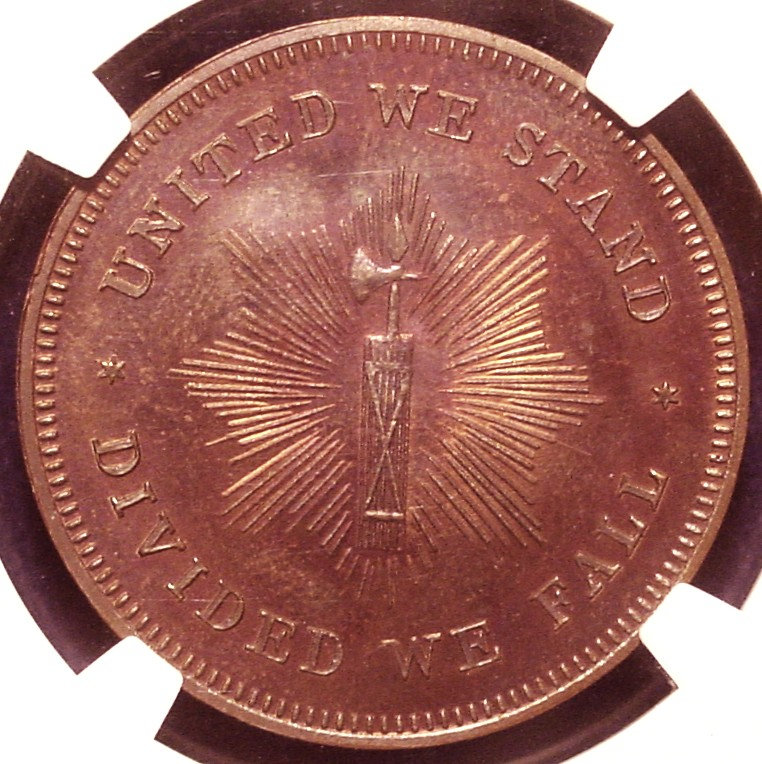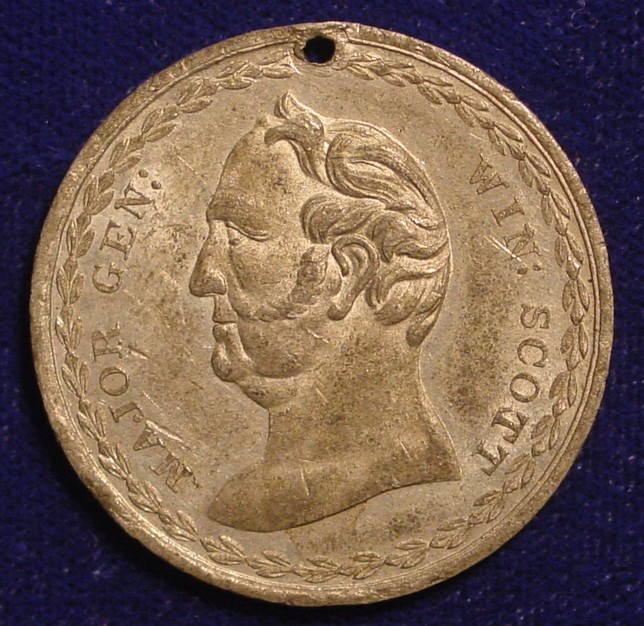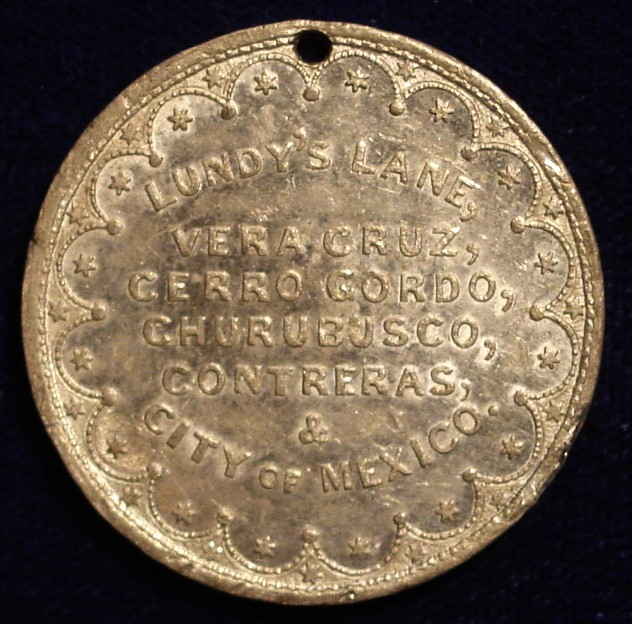Another Winfield Scott Political Medalet
Here is second Winfield Scott medalet that I purchased. It is way more than likely that this one was not issued in 1852 during the Scott campaign. This reverse was also paired with an Abraham Lincoln die, perhaps in 1860 and perhaps sometime after that. Both of them are considered very scarce or rare today.


The image of the ax on the reverse is called a fasces, and yes, in the 20th century it was hijacked by the Italian Fascists to be their symbol. In Roman times stood for a magistrate’s power. The image is symbolizes that a nation or a movement is stronger when it is bound together. The Nazis did the same thing with the swastika, which used to stand for good luck. It is interesting to note that the fasces appears on the wall of the U.S. House of Representatives and the reverse of the Mercury Dime.
It is always dangerous to project "what ifs" into history, but here goes. IF Winfield Scott had been 10 years younger and at least 100 pounds lighter, the Civil War might have ended much sooner. Scott was the foremost U.S. military hero during the first half of the 19th century. He was the general who marched into Mexico City at the end of the Mexican War, and Scott was one of the heroes of the War of 1812. In the intervening years, he was one of the leaders who kept the U.S. Army going when it was at one its lowest peacetime ebbs.
Scott proposed the “anaconda plan” which called for blockading the Confederate ports thus strangling the Southern economically and militarily. The “anaconda plan” was one of the cornerstones of the Union victory.
Conversely, if Scott had been able to end the Civil War sooner, slavery might not have ended as soon as it did. Lincoln did not issue the Emancipation Proclamation until September 1862. If Scott had won the First Battle of Bull Run convincingly and put down the Rebels quickly, slavery might have survived longer. Like I said “what ifs” in history can be dangerous assumptions.
The obverse of this medalet was used in the Scott campaign without a doubt, and here is an example of that piece.


Comments
Very nice Bill... and the historical 'what if's' always make for interesting discussions.... Cheers, RickO